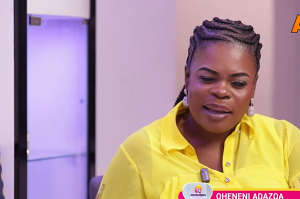The IOM office in Accra has registered 571 children trafficked for slave labour in fishing communities in the Volta and Central regions of Ghana.
The first phase of the registration was successfully carried out by IOM staff in Tonka, Jakalai, Kadue, Jyatakpo and Blekente communities in the Atebubu District of Brong Ahafo region.
According to IOM Ghana's Dr Ernest Taylor, local traditional leaders helped to win the cooperation of the fishermen, locally known as "slave masters". "We met on a one-to-one basis with 96 of the 136 fishermen who are known to employ under-aged labour in Bong Ahafo region. All of them promised to free the children. We told them that, in exchange, they would receive training and modern fishing equipment, so they won't have to employ children in future," he says.
IOM and the Ghanaian authorities have now identified a transit building in Yeji town, where the children will stay once they have been released.
"We will continue to register all cases of trafficked children in the region. We will then start the process of tracing families with the help of the traditional leaders and the fishermen. Once the families have been identified, we will contact them and provide them with enough help to ensure that the return of the children is sustainable," says Dr Taylor.
Family reunification will be consolidated through activities aimed at allowing children to return to school or join vocational training programmes. Poverty, which led to the trafficking of the children in the first place, will be addressed by giving the parents access to income generating micro-credit schemes.
The US-funded IOM programme, which is jointly implemented by the Ghanaian authorities, the ILO, the Catholic Relief Service and Apple, a local NGO, aims to return and reintegrate over 1,200 children.
Child trafficking in Ghanaian society is only partially explained by poverty. Traditionally it has been a common practice for poor parents to hand over their children to be looked after by relatives and friends. This has sometimes resulted in parents sometimes effectively selling their children. There are currently no laws against human trafficking in Ghana.
The International Labour Organization (ILO) estimates that about 250 million children between the ages of 5 and 17 years worldwide are engaged in various forms of child labour. Of these, some 80 million are found in Africa.
For more information, please call Dr Ernest Taylor, IOM Accra, Tel. +233.21 764 303
Press Releases of Wednesday, 5 February 2003
Source: International Organisation for Migration (Geneva)












